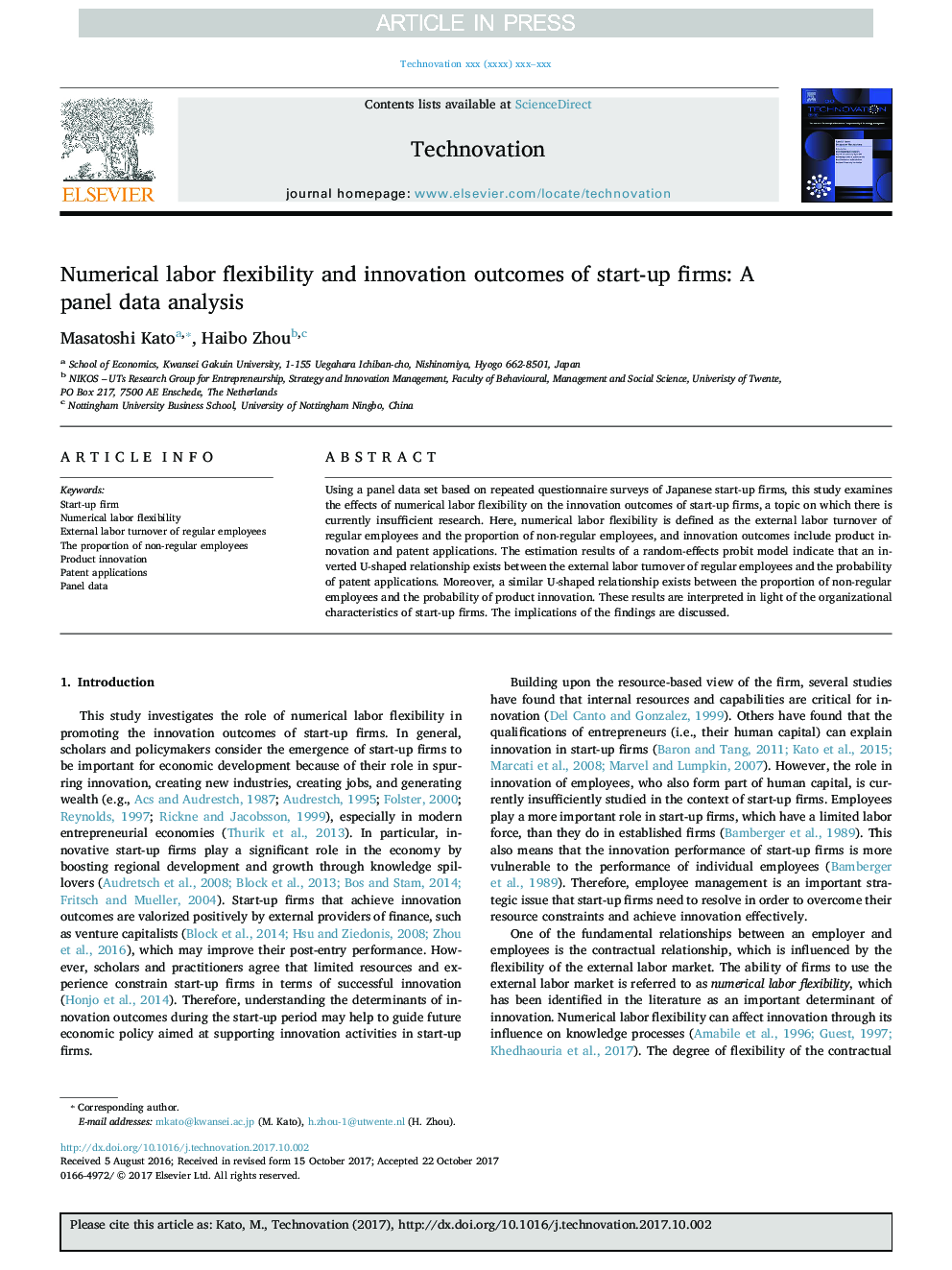| Article ID | Journal | Published Year | Pages | File Type |
|---|---|---|---|---|
| 7427125 | Technovation | 2018 | 13 Pages |
Abstract
Using a panel data set based on repeated questionnaire surveys of Japanese start-up firms, this study examines the effects of numerical labor flexibility on the innovation outcomes of start-up firms, a topic on which there is currently insufficient research. Here, numerical labor flexibility is defined as the external labor turnover of regular employees and the proportion of non-regular employees, and innovation outcomes include product innovation and patent applications. The estimation results of a random-effects probit model indicate that an inverted U-shaped relationship exists between the external labor turnover of regular employees and the probability of patent applications. Moreover, a similar U-shaped relationship exists between the proportion of non-regular employees and the probability of product innovation. These results are interpreted in light of the organizational characteristics of start-up firms. The implications of the findings are discussed.
Related Topics
Social Sciences and Humanities
Business, Management and Accounting
Business and International Management
Authors
Masatoshi Kato, Haibo Zhou,
